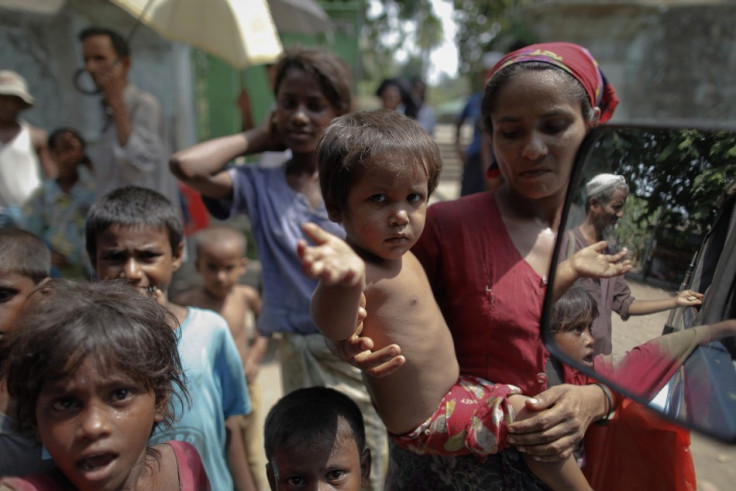Myanmar Rohingya Muslims Beaten and Arrested for Refusing to Register as Bengali Immigrants

Myanmar authorities have beaten and arrested Rohingya Muslims who refused to register with immigration officials, AP reported.
Witnesses told the news agency that authorities raided the villages of the Rohingya - defined by the UN as the world's most persecuted minority - to force them to admit they are illegal immigrants from neighbouring Bangladesh.
The move comes after the government publicly offered citizenship to the Muslim minority, in exchange for registering their identities as Bengali.
According to residents, those who refused to register suffered the consequences.
"We are trapped," Khin Maung Win said, adding that authorities started setting up police checkpoints outside his village, Kyee Kan Pyin, in mid-September. These checkpoints are preventing people from leaving even to buy food in local markets, or take children to school.
"If we don't have letters and paperwork showing we took part — that we are Bengali — we can't leave," he said.
According to Chris Lewa of the Arakan Project, which aims to promote the recognition of basic rights to the Rohingya, residents reported incidents of violence and abuse in at least 30 villages from June to late September.
In some villages, the names of influential residents were posted on community boards along with verbal warnings that they would face up to two years in jail if they failed to convince others to take part in the registration process.
Other Rohingya said officials forced them to sign the papers at gunpoint, or threatened that they would end up in camps if they didn't comply.
Villagers have also been kicked and beaten with clubs and arrested for refusing to take part.
Violence against Rohingya Intensified
Violence against Myanmar's Muslims has intensified over the past two years, incited by extremist monks and the anti-Muslim '969' campaign, which urges Buddhists to stop interacting with the Rohingya and boycott their businesses.
More than 230 people have been killed in religious violence in Myanmar since June 2012 and more than 140,000 have been displaced.
A New York Times short documentary broadcast last June showed how Myanmar authorities confine the Rohingya to "quasi-concentration camps" or to their own villages, with reduced/minimal access to medical care and education.
In January, Burmese police set fire to at least 70 Rohingya homes in the village of Du Char Yar Tan, where at least 48 Muslims were said to have been killed by a Buddhist mob.
© Copyright IBTimes 2024. All rights reserved.






